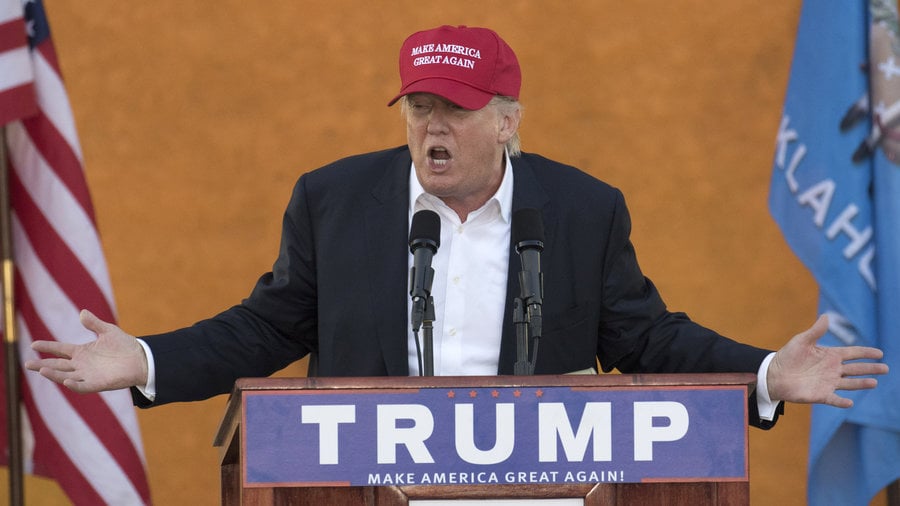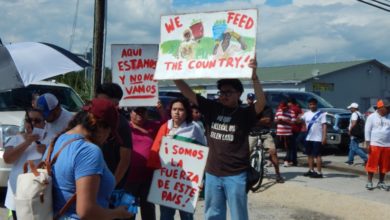Tens of millions of residents of the United States and its colonial territories are legally or practically barred from voting every year. People experiencing homelessness, living with felony convictions, non-citizen immigrants, disabled people, and residents of U.S. territories are all denied the basic democratic right to participate in elections.
All disenfranchised people are equal members of the communities they live and work in, expected to pay taxes and follow state and federal laws just like everyone else. They suffer the consequences of laws passed by politicians they have no legal power to vote for or against.
Disenfranchisement through racist criminal “justice” system
More than five million people in the United States — 2.3% of the voting age population — are barred from voting for being convicted of a felony crime. Laws vary state to state but only two states, Maine and Vermont (and the colonial territory of Puerto Rico) have no restrictions. The rest vary from reinstituting voting rights after release from prison to denying voting rights to those out of prison but still on felony probation or parole. Eleven states never give back the right to vote, even to those who have successfully finished all their sentences.
The Sentencing Project estimates that one in 16 Black people of voting age is disenfranchised, although seven states — Alabama, Florida, Kentucky, Mississippi, Tennessee, Virginia and Wyoming — each double the national average to more than one in seven. More than 1.1 million people are still banned from voting in Florida, despite a 2018 referendum that aimed to restore these basic rights.
Liberation News spoke to Julio “Ceschi” Ramos, a musician from New Haven, Connecticut who was unjustly convicted of a felony. “In most cases if one cannot afford a proper attorney, they will settle for a bunk plea deal that marks them with a felony for life. Once entire marginalized communities have been marked as felons and laws have been set in place that forbid felons from voting, we inevitably see entire communities having their basic constitutional liberties revoked.
“At the very least, this leads to these communities feeling disempowered, apathetic and stunted. At the worst, this is a subtle, legal perpetuation of Jim Crow era law. In certain states felons have been forced to pay to regain their right to vote, just one of many predatory examples of how capitalism perpetuates inequality,” Ramos added.
People experiencing homelessness and housing instability
People experiencing homelessness are not legally barred from voting since the 1972 Dunn v. Blumstein Supreme Court ruling declared durational residency requirements unconstitutional. When registering to vote, someone without a home can write down a shelter address or even a park bench or street intersection, wherever they sleep at night. In many states though you also need to write an address where you can receive mail, and without a stable address to receive election notices, people with housing instability can be wiped from the voter rolls.
In this year’s election, access to a mailing address is more vital than ever. As of October 30 more than 95 million have voted early, two-thirds of which have been by mail. If someone without an address wants to vote, they will have to take the risk of voting in person while many states are seeing new spikes in COVID-19 transmission and death rates.
Two thirds of states also require some form of photo ID to register to vote, which many experiencing homelessness do not have.
Almost half a century after Dunn v. Blumstein, most people without homes still do not vote. Only 10% of homeless people voted in 2012, even though an estimated 60% should be legally eligible. More than half a million people in the United States are homeless while there are more than 17 million vacant homes.
Non-citizen immigrants work, pay taxes, but cannot vote
About 7% of people in the United States are non-citizen immigrants, which includes permanent, temporary and undocumented residents.
It was not always the case that non-citizens had no right to vote in the United States. Originally, in order to vote one need only be white, a man, and own property. Up through the 1920s non-citizens could even hold public office. Citizen voting laws first appeared in some southern states leading up to the Civil War in an attempt to prevent the abolition of slavery, and have been escalating ever since.
Today, only about a dozen cities and townships allow non-citizens including undocumented immigrants to vote in local elections. None allow them to participate in national elections.
“Immigrants should be able to vote because we contribute to the day-to-day functions of this society,” Teresa Páez, who works in clinical research, told Liberation News. “I work in healthcare and it’s exciting to be able to contribute in this way, yet it’s disheartening to know regardless of the years I spend here and the labor I put in, as an immigrant it’s very unlikely I will ever be able to vote. There are over 11 million undocumented immigrants in this country — many of them essential workers — that simply don’t have the right to vote, but many of them have lived here for many years.”
Residents of U.S. colonies
Guam, Puerto Rico, American Samoa, the U.S. Virgin Islands and the Northern Mariana Islands are all subject to U.S. federal laws and pay federal taxes to the U.S, government, but the millions who live in these colonies are not allowed to vote in national elections.
Puerto Ricans have been considered U.S. citizens for over a hundred years. While Puerto Rican residents of other states can vote, because Puerto Rico has no representation in the electoral college residents of the island effectively have no say in which candidate wins the general election.
Residents of American Samoa are considered “U.S. Nationals” instead of “U.S. Citizens” This means that they are not only barred from voting but also running for office, and can only hold limited jobs even if they move to a U.S. state.
People’s movements for independence have long fought for these colonies’ right to be free from U.S. rule. The denial of residents’ basic democratic rights is all the more reason for these movements to continue and intensify.
People with disabilities
Thousands of people in the United States are legally barred from voting by state “incompetency” laws that disallow adults with legal guardianship for mental health reasons to vote. This is an insulting and oppressive law that disability rights activists have been fighting against for years. There are many reasons someone might seek legal guardianship, such as needing assistance with medical or financial decisions and responsibilities, but still be perfectly able to vote. Some state laws still contain derogatory phrases such as “idiot” or “of unsound mind.”
While there are no specific laws barring physically disabled people from voting, the infrastructure of U.S. cities and towns and the design of the voting system keep countless people away from the polls as if there was a law against it. Title II of the Americans with Disabilities Act requires that people with disabilities have a full and equal opportunity to vote, meaning every polling location should be accessible.
But this law is rarely followed. In the 2008 presidential election for instance, 73% of polling places had architectural barriers that made it “difficult or impossible” for people with disabilities to enter the building. This barrier is being exacerbated during the COVID-19 crisis when many polling locations have closed, meaning people with disabilities will have to travel longer, wait in longer lines and potentially be exposed to the virus if they need to vote in person.
The U.S. government attempts to derive legitimacy at home and around the world by projecting their image as one of the world’s “great democracies.” But with so much disenfranchisement — both formal and informal — on the basis of nationality, legal record, disability, housing and more it is clear that this is nothing more than hypocrisy.






